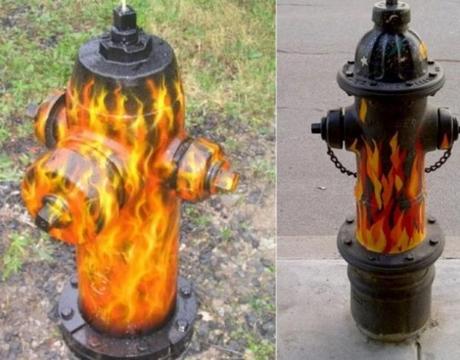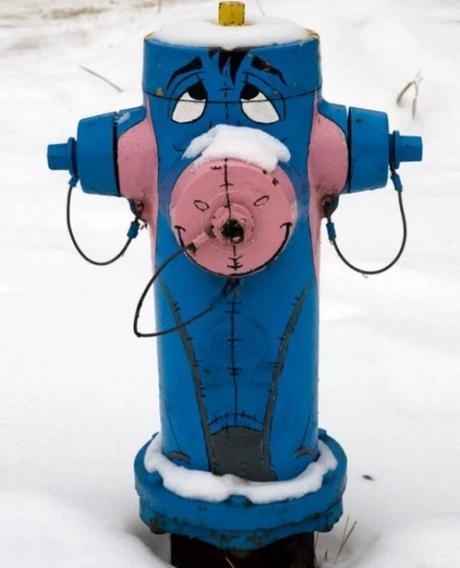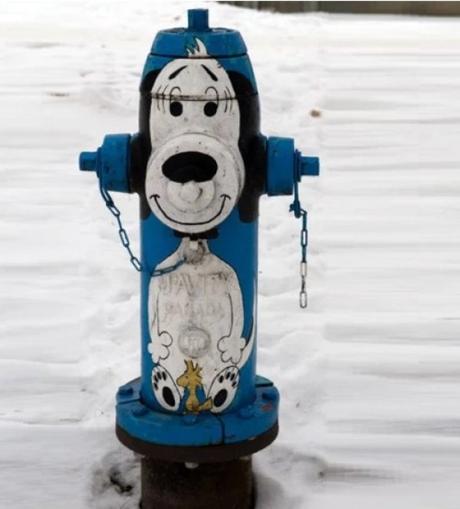Every year, thousands of homes in the UK fall victim to devastating fires, resulting in injuries, loss of life, and significant property damage. In fact, according to the Home Office, fire and rescue services attended over 153,000 fire incidents in 2021/22 alone. Many of these fires could have been prevented with proper precautions and awareness. Fire prevention is not just about protecting your property; it’s about safeguarding the lives of your loved ones. In this article, we’ll share ten essential tips to help you prevent fires in your home as well as looking at some fire hydrants covered in art to enjoy along the way.

1. Install and Maintain Smoke Alarms
Smoke alarms are your first line of defence against house fires. They can provide an early warning, giving you precious time to escape safely. It’s crucial to have smoke alarms installed on every level of your home, particularly in sleeping areas and hallways.
Tip: Test your smoke alarms regularly and change the batteries at least once a year. A good rule of thumb is to do this when you change your clocks for daylight saving time. Also, consider interconnected smoke alarms, so if one goes off, they all do, ensuring you hear the alarm wherever you are in the house.

2. Create an Escape Plan
In the event of a fire, every second counts. Having a well-thought-out escape plan can make all the difference. Everyone in the household should be familiar with the plan, including children.
Tip: Practice fire drills with your family at least twice a year, ensuring that everyone knows the quickest and safest routes out of the house. Don’t forget to choose a designated meeting spot outside, away from the house, where everyone can gather once they’ve escaped.

3. Keep Flammable Items Away from Heat Sources
Many household items, such as curtains, paper, and clothing, can easily catch fire if they are too close to heat sources. It’s essential to keep these items at a safe distance.
Tip: Ensure that flammable items are kept at least one meter away from sources of heat like stoves, heaters, and open flames. Where possible, use fire-resistant materials for curtains and upholstery.

4. Use Caution When Cooking
Cooking is the leading cause of fires in the home. A momentary lapse in attention can lead to disaster, especially if oil or grease is involved.
Tip: Never leave cooking unattended, particularly when using the hob. Keep a fire extinguisher in the kitchen, ideally one that’s suitable for grease fires. It’s also advisable to wear short or tight-fitting sleeves while cooking to avoid accidentally catching your clothing on fire.

5. Properly Store and Handle Flammable Liquids
Flammable liquids like petrol, paint thinners, and certain cleaning products can pose a significant fire risk if not stored correctly.
Tip: Store flammable liquids in approved containers, away from heat sources, and in a well-ventilated area, preferably outside the living spaces of your home. Always keep these items out of reach of children, ideally in a locked cabinet.

6. Electrical Safety
Electrical malfunctions are another common cause of house fires. Faulty wiring, overloaded sockets, and damaged cords can all create a fire hazard.
Tip: Avoid overloading electrical outlets and extension leads. If you notice any frayed or damaged cords, replace them immediately. It’s also wise to have your home’s wiring checked by a qualified electrician, particularly if you live in an older property. Use surge protectors for expensive electronic devices, and never run electrical cords under carpets or rugs.

7. Be Careful with Candles
Candles can create a cosy atmosphere, but they also present a fire risk if not used carefully.
Tip: Never leave a candle unattended, and always place it in a sturdy holder on a flat, stable surface. Keep candles away from flammable materials like curtains or bedding. Consider using flameless, battery-operated candles as a safer alternative.

8. Fireplace and Chimney Safety
A warm fire in the fireplace can be a comfort on a cold night, but it’s essential to ensure that your fireplace and chimney are properly maintained.
Tip: Have your chimney inspected and cleaned at least once a year to remove soot and creosote, which can ignite and cause a chimney fire. Always use a fire screen to prevent embers from escaping into the room, and never leave a fire unattended.

9. Childproof Your Home
Children are naturally curious, which can sometimes lead to dangerous situations if they find matches, lighters, or other fire-starting materials.
Tip: Store matches, lighters, and flammable materials in locked cabinets, well out of reach of children. Teach your children about the dangers of fire and what to do if they encounter one.

10. Use Fire Extinguishers
Having a fire extinguisher readily available can help you put out small fires before they become unmanageable.
Tip: Keep fire extinguishers in key areas of your home, such as the kitchen, garage, and near the fireplace. Make sure that everyone in the household knows where the extinguishers are located and how to use them. Regularly check the extinguishers to ensure they are in working order and have not expired.
Fire prevention is a crucial aspect of home safety that should never be overlooked. By following these ten tips, you can significantly reduce the risk of a fire in your home and ensure that you and your loved ones are prepared in case the worst should happen. Remember, while prevention is key, being prepared for an emergency is equally important. Take action today to implement these safety measures and share this information with others to help promote fire safety awareness. Stay safe, and protect your home from the risk of fire.

